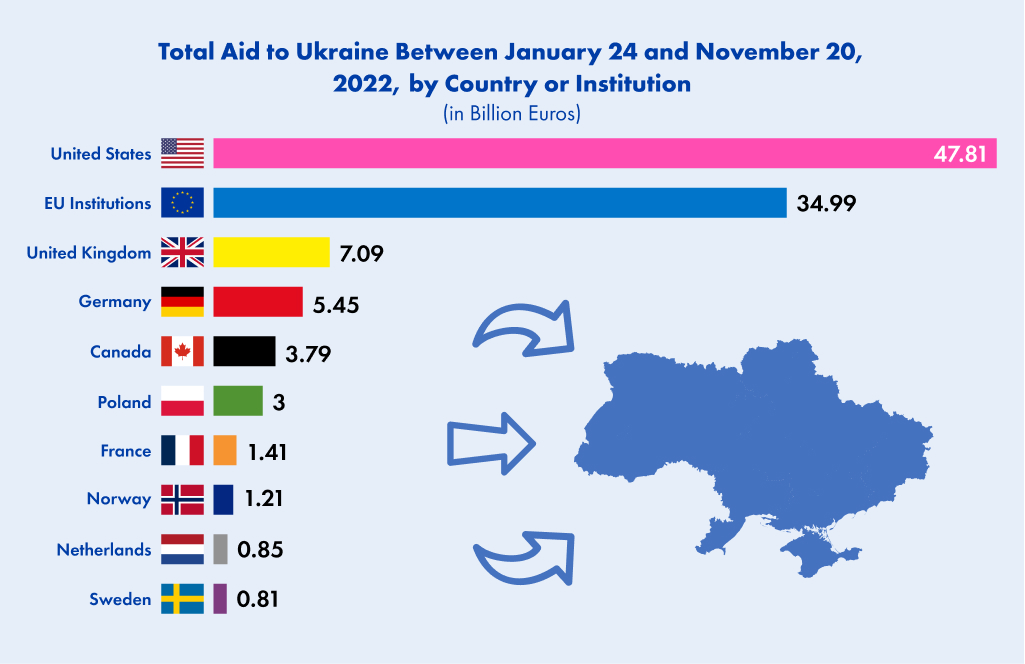Issue #112
Issue #112
Guten Morgen!
Welcome to another edition of the Krautshell! This week, Mats takes a (painfully) close look at the recent European Parliament corruption scandal in his House’s View and argues that things will have to change. In addition, our main articles cover the German government’s ongoing resistance to heavy tank deliveries to Ukraine (und what that says about Chancellor Scholz’s leadership), an amusing/disturbing anecdote out of the life of a German living in Austria, and the newest depressing study about Europe’s largest economy. Finally, Anna tells us what’s wrong with Olaf Scholz’s new appointment for Defense Minister in her WOOM #genderbalance.


Anna Christian
FIRST, SOME SOLID INTEL:
Tank Tango
As you may or may not have heard, Germany has a new defense minister. It’s hard not to feel sorry for Boris Pistorius (SPD) considering that one, he has inherited a mess of major proportions (aka Germany’s military) and two, he had all of 24 hours in office to prepare for this year’s most important defense conference so far – the Ukraine Defense Contact Group meeting at Ramstein AFB (no, not the band). The meeting was not only crucial in its implications for Ukraine’s defense, but also put a spotlight on what has been a recurring theme since Russia’s February 2022 invasion: Berlin’s lack of leadership.
There are many things to be said for or against sending offensive weapons to Ukraine, and proponents of both positions have presented valid arguments. What cannot be readily argued, however, is that Chancellor Scholz’s stance over the past year has been anything other than dithering, to use a nice English word. Let’s run you through the process: In the beginning of the war, Scholz loudly announced a “Watershed” moment in German history and a fundamental rethink of Germany’s traditionally reticent (not to say pacifist) defense policies. What followed were largely hollow announcements and a widely ridiculed delivery of 5,000 helmets to Ukraine. Since then, the German government has delivered significant amounts of military hardware to Kyiv – including ammunition, anti-aircraft guns and infantry fighting vehicles – albeit almost always in response to allied (and Ukrainian) pressure rather than on its own initiative.
The current demand for Leopard 2 main battle tanks is much the same. At the time of writing, the federal government has yet to decide whether they will provide these weapons systems and allow other allies (Poland and Finland) to provide theirs. One image, however, has stuck: When it comes to Ukraine, Germany can be expected only to react, not to act. Tune in next week for (hopefully not) more of the same.
European Absurdities: Austria Edition
From time to time, you will learn something about Austria, whether you want to or not. This week, the author of this piece learned that to get his health insurance card he must bring a photo and his social security number. Not to public administration, but to the police. Quite irritating as EU law says that no EU citizen can be treated worse in a foreign EU country than the national population – and Austrians don’t have to go to police to get their confirmation of health insurance. Imagine being from California but denied your civil rights in Arizona – same idea here (round about). So, some German guy in Austria (not me) filed an EU complaint against this regulation, an instrument EU citizens can use when feeling that they be discriminated in another EU country. But let’s look at the backstory of this because it’s hilarious.
The whole regulation, which mainly introduced that the insurance cards need a photo, was agreed in 2016 when the conservative ÖVP governed together with the right-wing FPÖ. The ÖVP claimed that not having photos on insurance cards opened floodgates to insurance frauds and the FPÖ said: “Yes, that’s right and fraud is always committed by foreigners.” Hence, the current regulation. Both parties claimed that health insurance fraud – depicted as someone going to the doctor with someone else’s insurance card – would cost the Austrian state €30 millions annually. The Vienna health insurance did some calculations back in 2016 when the new policy was introduced. They have around one third of Austria’s population covered, meaning they should experience €10 millions of that fraud. Actually, they found fraud causes costs of only nine… THOUSAND euros. To make it even more funny: the whole introduction of the new insurance card with photos will cost the Austrian state approximately €33 million until 2023 to prevent around €30k in insurance fraud per year. Great job!
Down and Out in Berlin
We have treated you to a fair share of downbeat analysis regarding Germany’s future (economic) prospects, so let’s start with the good news: Due to the unusually warm weather in December and January, it looks like Germany’s gas supplies will make it through the winter (hooray). But while things are looking better in the short-term, long-term structural issues are going nowhere. Early on Monday, morning commuters across the country were treated to a new study by the Leibniz-Center for European Economic Research (ZEW) which painted a grim picture of Europe’s largest economy.
The “Country Index for Family Businesses” put Germany 18th out of 21 industrial economies, better only than Spain, Italy and Hungary. (USA came first, no need to rub it in.) ZEW examined several indicators – taxes, labor costs, productivity, regulation, financing, infrastructure, and energy – and concluded that things are going south in a major way. As the head of the Family Business Foundation put it, “Germany as an industrial location has dramatically lost quality”, and the study itself suggests that policymakers should use the current crisis for a “clear change of direction”. But will policymakers listen?
The current landscape suggests not. Alongside massive (if largely hidden) debt increases and prohibitive bureaucracy, taxes remain among the highest in the world and the state has rather little to show for it. To take two examples, digitization – the pet project of the last few governments – is still in its Kinderschuhe (“children’s shoes”) despite large investments, and the much-vaunted Energiewende (“Energy Transition”) continues to drive high prices despite several hundred billion euros of investments. This is not to say that Germany does not have positive things to offer: an excellent healthcare system, good schools, and a broad social welfare net. But current trends suggest much needs to be reformed to preserve the achievements of previous generations.
TAKE A BREAK, GIVE YOUR EYES A REST.

Source: Statista
THE HOUSE’S VIEW:
By Mats
Transparency in the European Union: Opaque at Best
If the events in Brussels over the past few weeks have taught us anything, it is that transparency and the European Union (EU) go together about as well as Tom Brady and retirement. It should be a natural pairing, but for some reason it just never quite seems to work out.
The ramifications of the scandal that rocked Brussels before the Christmas break, “Qatargate” (read here if you don’t know what I’m talking about) are still playing out as I write this article. From personal conversations I’ve had within the Brussels bubble, individuals who work closely with or in the institutions directly are pearl-clutching, throwing around terms like “tragedy for democracy” or “dark day for the EU.” I’m here to tell you that it didn’t take a crystal ball to predict something like this was coming. To prove my point, I want to take this opportunity to critically analyze how transparency works (or doesn’t) at the European institutions. A history, if you will, of Brussels’ transparency wins and fails. Let’s get to it.
A Long, Littered Road
A simple Google search will show you that Qatargate is nothing out of the ordinary in the European capital. As in, we have literally been here before. An investigation from the Organized Crime and Corruption Reporting Project revealed that between 2012 and 2014, Azerbaijan’s government poured over 3 billion USD into bolstering the country’s reputation and buying influence in Europe. While further investigations into individual politicians who took bribes might be a logical next step, EU and Member State officials had another idea: let’s open a gas pipeline between Azerbaijan and the EU! Further investigations stopped there.
Let’s give one more example to really hit home the point that Qatargate was not a one-off. In 2006, the EU Internal Audit official, Robert Galvin, conducted an expenses audit of Members of the European Parliament (MEPs). The results must have been particularly alarming, as the report was kept under lock and key until 2008. Then, after an appeal from an Irish lawyer, the report saw the light of day. And it was immediately clear why the European Parliament kept it secret. Some highlights include: MEPs granting themselves bonuses equal to 150% of their base salaries, roughly 180,000€ in staff expenses without receipts, and “business and staff expenses” of well over one million euros. So yes, we’ve been here before.
Transparency Register: Band Aid over a Gushing Wound
After these (and many other) scandals, in 2011 the European Institutions decided to tackle corruption head-on by adopting a mandatory transparency register, requiring all those seeking to influence the EU to record their data before engaging. Wait no, we can’t say “the European Institutions” because the Council of the European Union opted out. And by the way, registration is on a voluntary basis. Ah, and I almost forgot: there was no requirement to record meetings. So, the register was neither mandatory nor transparent.
To be fair, the Commission was the first institution to take steps towards transparency, with a cross-institution “no registration, no meeting policy” for Commissioners and their cabinets. However, lower-level civil servants are not included in this policy. In the EP, each member could decide for themselves how they wanted to proceed with lobbyists who are not registered. Meanwhile, the Council has been described as a “black box.” It took until 2020 for the word “mandatory” to actually mean something, as the EP, EC, and Council found a compromise. The exact definition differs depending on who you ask though. With the agreement reached, each institution has the freedom to interpret the term for itself. And… that can lead to some pretty “interesting” situations.
Where are we now?
In a state of limbo. That’s where we are. There are rules in place, but no one really has enforced them to the point that individuals often forget that they exist. According to the Parliament’s Code of Conduct, all MEPs shall declare any gifts they receive in their functions no later than one month after their reception to the President of the EP. Problem is, not even the President herself sticks to the rules. After going on and on about the terrible nature of Qatargate and a need for more transparency, EP President Roberta Metsola declared 142 gifts on January 12th, 125 of which were past the “mandatory” deadline to report. To lighten the mood a bit, MEPs are also required to upload a photo of any gifts they receive – which led to Metsola’s office uploading this lovely picture of dried sausage. Point being: if even the leader can’t follow the rules, you can imagine everything that goes on without “the public” knowing.
The House’s View: All Bark, No Bite
In an attempt for a quick-fix, Metsola introduced 14 proposals to revamp the transparency system. If passed, they would require MEPs to record any and all lobbying meetings about legislative happenings and declare any conflicts of interest when assigned a dossier. Fair enough, but even these proposals fail to address the most serious flaw in the system: there is no one to enforce these rules.
If you ask me, the best place to start would be with a new independent body responsible for investigation. To truly shine a light on unethical practices, this body needs to have full authority to investigate and sanction individuals from all European Institutions. Like in any private company, breaking the rules should carry serious consequences if you’re caught. Maybe this little bit of fear is necessary to clean up the transparency mess. The time for voluntary reporting is over, it’s high time for rules and consequences.
LONG STORY SHORT:
- German Population on the Rise: Despite a marked decrease in its birthrate, Germany’s population has grown to an all-time high of 84,3 million people, the Federal Statistical Office has reported. The population increase is due to a net inflow of around 1,5 million people, the highest recorded number since 1950. Germany remains by far the most populous country in Europe, ahead of the United Kingdom (approx. 68 million) and France (62 million).
- Italy Captures Top Mafia Boss: After thirty years on the run, Italy’s most wanted Mafia boss was arrested this week, apparently in a private clinic in Palermo, Sicily, where we was receiving cancer treatment. Messina Denaro is accused of being a major boss of the notorious Cosa Nostra Mafia and was previously sentenced in absentia for several murders.
- Macron Pension Reform Faces Resistance: Thousands of people in France have taken to the streets against President Macron’s pension plan, which includes raising the retirement from 62 to 64 years. The effects of the strikes were felt around the country, with many schools closed, electricity production shut down, and buses and trains remaining in depots. Macron (still) intends to stick to his plans.
WHAT’S ON OUR MINDS:
KEEP THE BALANCE
Germany is once again trying to change its electoral system to get under control the exponentially growth of its Parliament, and after seeing the draft provided by the governing coalition I intended to write about the fundamental question if denying directly elected MPs their seat in Parliament was in any way acceptable.

But then another fundamental question got in the way: Should gender play a role when picking personnel for our highest government positions? You read above that we have a new Minister of Defense, Boris Pistorius, whose appointment clearly violated Chancellor Scholz’s commitment to a gender-balanced government and thus raised some concern, and not just with the opposition, but as well within his own party.
Pistorius is not a bad choice, and while not being the Chancellor’s first pick, he might very well turn out to be able to get a grip on one of the most difficult houses in the administration. However, the Chancellor promised a gender balanced government, and that promise now has been broken.

In the ideal world gender should not play a role. But in that ideal world we would have a gender-balanced government, without even having to think about it. We would have enough women to choose from that finding personnel for any kind of position would not be such a major effort.
But we cannot expect experienced female candidates for the highest positions in the government, if only 30-35 % of the MPs are female, both in the federal and state parliaments. When in most parties less than one third of the members are women. When the structure of political participation makes it fundamentally more difficult for women to partake in the process, and even reach the “middle management”.

In an ideal world, we would not only have a gender-balanced government, but a gender-balanced society, and a gender-balanced distribution of power, and of wealth. But we do not. And it requires effort and sacrifice to change things. To me, thus, it seems obvious: Until we have reached that balance, gender needs to be a criterion in filling any public position. And not only on the highest levels.

